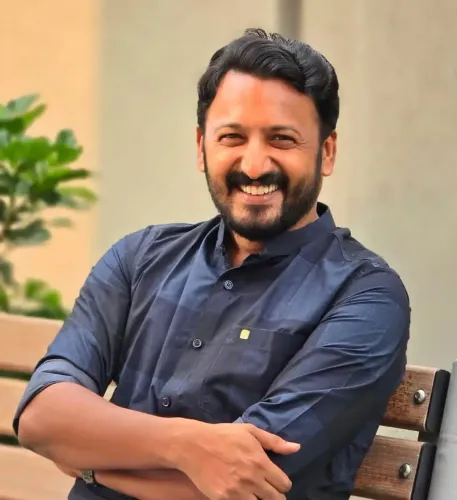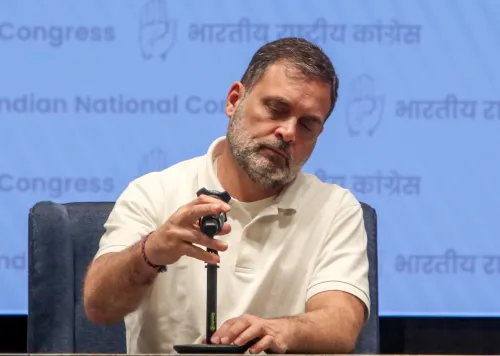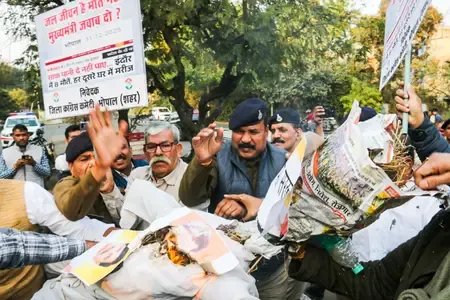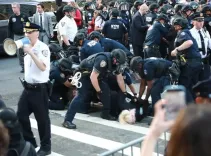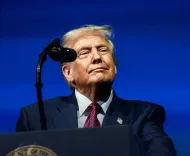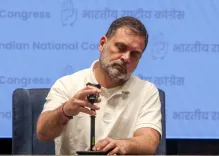What Legacy Does Senior Separatist Leader Abdul Gani Bhat Leave Behind?
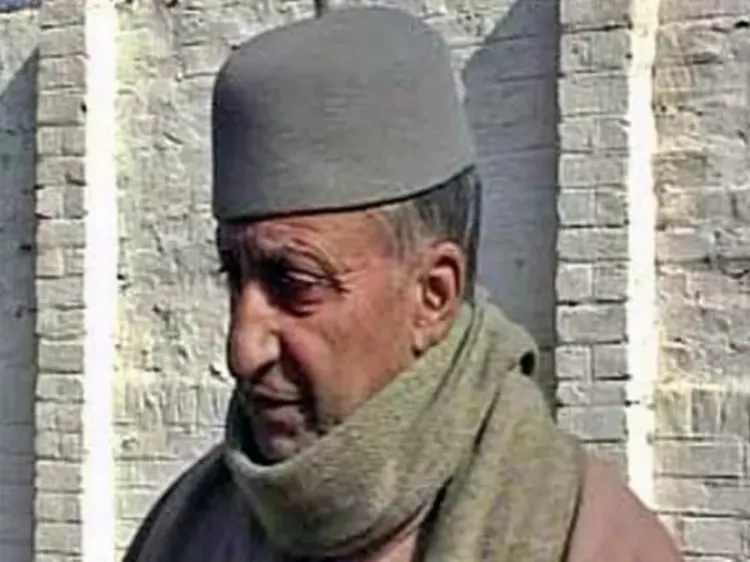
Synopsis
Key Takeaways
- Abdul Gani Bhat was a pivotal figure in Kashmir's separatist politics.
- He co-founded the Muslim United Front in the late 1980s.
- Bhat was a respected educator before entering politics.
- His political career was marked by significant events, including the 1987 elections.
- His passing signifies a notable loss for the separatist movement.
Srinagar, Sep 17 (NationPress) Abdul Gani Bhat, the former Chairman of the Hurriyat Conference and a notable figure in separatist politics, has died at his residence in Botingoo village, Sopore, located in Jammu and Kashmir. Family members confirmed that Prof. Bhat passed away this evening after a brief illness.
As a significant political personality, he was active in the separatist movement in Kashmir for several decades. His family will share details regarding his funeral prayers at a later time.
Born in 1935 in Botingoo, Bhat grew up in a family that valued education. He attended the historic SP College in Srinagar and pursued postgraduate studies in Persian, eventually earning a law degree from Aligarh Muslim University.
Upon his return to his home state, he began teaching Persian at the Government Degree College in Poonch, a profession he cherished for over twenty years before entering the political arena.
In 1986, he co-founded the Muslim United Front (MUF) and later became the chairman of the All Parties Hurriyat Conference (APHC), a coalition of separatist groups formed in 1993. He also served as the president of the Muslim Conference, Jammu and Kashmir (MCJK), a political faction that is currently banned by the Indian government.
Bhat was dismissed from his teaching position in Sopore by the then Governor Jagmohan due to allegations of anti-national activities.
He played an active role in separatist politics, leading the MUF, which was a coalition of various separatist parties that contested the 1987 elections against the National Conference led by Farooq Abdullah.
The 1987 elections are widely regarded as having been rigged to exclude MUF leaders from the state assembly.
It is believed that disillusionment with the democratic process led young supporters of separatist leaders from the 1987 elections to cross the border and return armed, marking the beginning of an armed insurgency in Kashmir in 1989.


